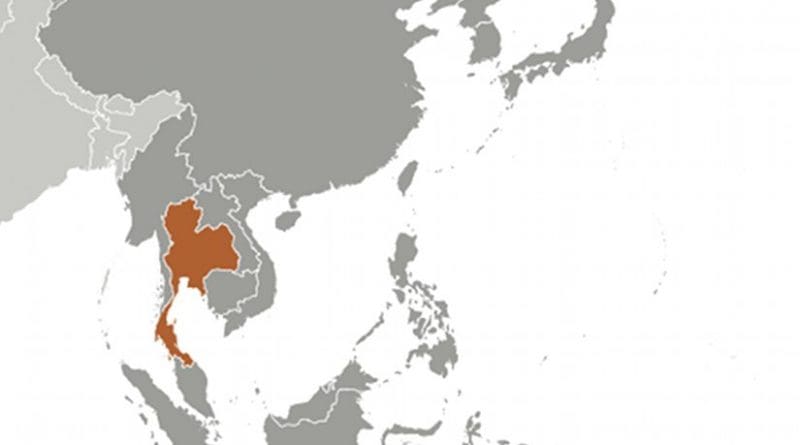Traveler In Transit: Bangkok And The Miracle Hotel – OpEd
Transitory states are often uncomfortable. One is neither truly dead or truly living. The tourist in transit can only ever hope that time will kill more quickly than he will kill it. Airports offer a sterile state, and the regular traveler who does have the chance of being bored witless in the travel lounge by the business class and people more concerned with miles than conversation will hope for an exit, however brief.
The result, then, is an unsatisfactory consummation with the place one visits, a love story that barely forms before it must be scrapped. The traveler in transit lives with one certain reality: the knowledge that relationships, impressions and ideas gathered in that short span of time will result in an abortion.
Be that as it may, when a flight is cancelled or postponed, offering a few hours to spare, there is one place that does lure the traveler. This is Bangkok, and when Thai airlines is not being cheeky with your routing, its compensation can come in the form of a stay at a host of hotels, one of the recent additions being the Miracle Suvarnabhumi Airport. (The term ‘hotel’ is sometimes abandoned or miraculously forgotten.)
The giant airport of Suvarnabhumi is a Mecca for an assortment of individuals – Russian tourists with new petro money to burn; paunchy Australians, Americans and Scandinavians hoping to enjoy times with their spouses or hoping to find new ones. The young variants hope for a dirty holiday without too much fuss, and even an excuse to sneak in a few narcotics at the price of potential life imprisonment. Thailand tends to soften the disposition of their guests – self-restraint is often lost, precipitating such chaotic scenes as evidenced in Hangover 2. In the airport, there is a whiff of plunder – the tourist market is there to be had, to be exploited, manipulated, extorted. The atmosphere in Thailand is the carnival with a twist, and the place with the greatest concentration of them, is Bangkok.
Thailand, like other tourist countries, has its specific nodal points. Like mosquitoes, tourists hover over stagnant pools before resting. When they do, there is a rehearsed misunderstanding, a mockery of communication between insect and pool. The waiters who speak with automatic courtesy in royal fashion simulate an air of charming ignorance. This pervades dealings from food to sex – the truth of the matter is that everyone is out to get something, and they often get what they, or at the very least nature, intended.
The air around Bangkok is scented with the fumes of pollution. Open burning is regular. Vegetation is there as a happy fuel, assaulted and lit. On the way from the airport to the transit point, the side stalls appear amidst the choking air like jewels in muck. This is the joy of consuming food in the tropics – one eats with an assortment of variables and entities – smog, open rubbish, other citizen subjects of the animal kingdom – rats, stray dogs and others who will help you should you wish to abandon your bowl of curried fish.
Eating is a fundamental passion – a meditative one. Often, individuals will sit down alone on a stool in hole-in-the-wall shops and side street market stalls. The experience is one of revelation. One is eating not merely to be alive, but to move into another realm of experience. Then, once done, the empty bowls lie ghostly upon the tables, filled with the dark coloured liquid of stock and chilies, chopsticks and spoons awaiting to be swept away and passed into tubs that lie in the open. Mosquitoes sometimes hover nearby, hoping for an errant pool that just might form for their young. Elderly patrons will have their large bottles of beer, and the smoking shall take place at leisure. All this time, the tropical heat will ring you, a mask, a presence that cakes your skin, drenching body and fabric.
Life is lived but life is precarious – the open pot holes where legs can be crushed and lives lost by the unsuspecting driver or pedestrian; scooters taking the reverse path on the road like missiles; the workmen openly at work without a care in the world as to whether they might be slicing a hand off in the course of their duties for the steel mills that dot the landscape out of the city. Here, where industry heaves and groans, one sees people existing, be it on the road side with a small fan keeping them cool on a mat, or the couples who are buying their latest meal in plastic bags.
The roads are chaotically and murderously busy. They are even entertaining, be it the driver who is motoring with his eggs up the road, honking with deranged commitment to his task of making it to the next side alley and pathway where he might set up shop.
All of this is but a glimpse of a beautiful, complex country, something of an ingenious political creation – one which has brilliantly deflected invasions and retained its sacred monarchy. Then, to finish the transit experience, to give the visitor who is but only here on the briefest of encounters, the unconsummated adventure, a bus that is like a mobile cocktail bar, a karaoke den of pleasure as it moves at speed along the high way, a blaze of neon lights, luring humans like months. Far better, indeed, than any transit airport lounge.

